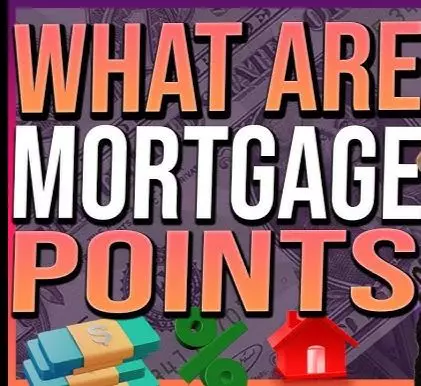Blog > Can Mortgage Points Affect Your Monthly Payment
How Much Will a Point Affect Your Mortgage Payment?
When you're navigating the world of mortgages, you might hear the term "point" thrown around. But what exactly is a point, and how will it impact your monthly mortgage payment? Let's break it down.
What is a Mortgage Point?
A mortgage point, also known as a discount point, is essentially prepaid interest that you can choose to pay your lender upfront in exchange for a lower interest rate on your mortgage. Think of it as buying down your interest rate.
- Cost: Typically, one point costs 1% of your total loan amount. So, on a $300,000 mortgage, one point would cost you $3,000.
- Benefit: In return for paying this upfront fee, your lender will reduce your interest rate. The amount your rate decreases per point can vary between lenders and depends on market conditions, but it's often in the range of 0.125% to 0.25% per point.
The Impact on Your Monthly Payment
The most direct effect of buying points is a reduction in your monthly mortgage payment. A lower interest rate means less of your payment goes towards interest and more towards the principal, at least over the life of the loan.
Let's illustrate with an example:
Imagine you have a $300,000, 30-year fixed-rate mortgage at an interest rate of 6.5%.
- Without points: Your estimated monthly principal and interest payment would be approximately $1,896.
- With one point (costing $3,000) reducing your rate to 6.25%: Your estimated monthly principal and interest payment would decrease to around $1,847.
- Savings: By purchasing one point, you'd save approximately $49 per month in this scenario.
Calculating Your Break-Even Point
While a lower monthly payment sounds appealing, it's crucial to consider the break-even point. This is the amount of time it will take for your total monthly savings to equal the upfront cost of the points.
To calculate the break-even point:
Cost of Points / Monthly Savings = Number of Months to Break Even
In our example:
$3,000 / $49 per month = approximately 61 months (or just over 5 years)
This means you would need to stay in your home and keep the same mortgage for roughly 5 years to recoup the $3,000 you spent on the point through lower monthly payments. If you plan to move or refinance before then, you might not save money in the long run.
Factors to Consider:
- How long do you plan to stay in the home? If it's a short-term plan, the upfront cost of points might not be worth the long-term savings.
- Do you have the cash available for upfront costs? Points are paid at closing. If your funds are limited, focusing on a larger down payment might be a better strategy. A larger down payment can also lead to a lower interest rate and avoid private mortgage insurance (PMI).
- What are the current interest rates? When rates are high, the long-term savings from buying points can be more significant.
- Could you use the money for other investments? Consider if the return on other investments might outweigh the savings from a lower mortgage payment.
Should You Buy Points?
The decision to buy mortgage points is a personal one that depends on your individual financial situation and long-term goals.
You might consider buying points if:
- You plan to stay in your home for a long time.
- You have the upfront cash available.
- You want to lower your monthly payments significantly over the life of the loan.
You might consider skipping points if:
- You plan to move or refinance in the near future.
- You have limited funds for closing costs.
- You prioritize a larger down payment.
In Conclusion
A mortgage point directly impacts your monthly mortgage payment by lowering your interest rate. Understanding the cost of the point, the resulting monthly savings, and your break-even point is essential to determine if buying points is the right financial move for you. Always discuss your options with your lender to understand the specific impact of points on your loan.


